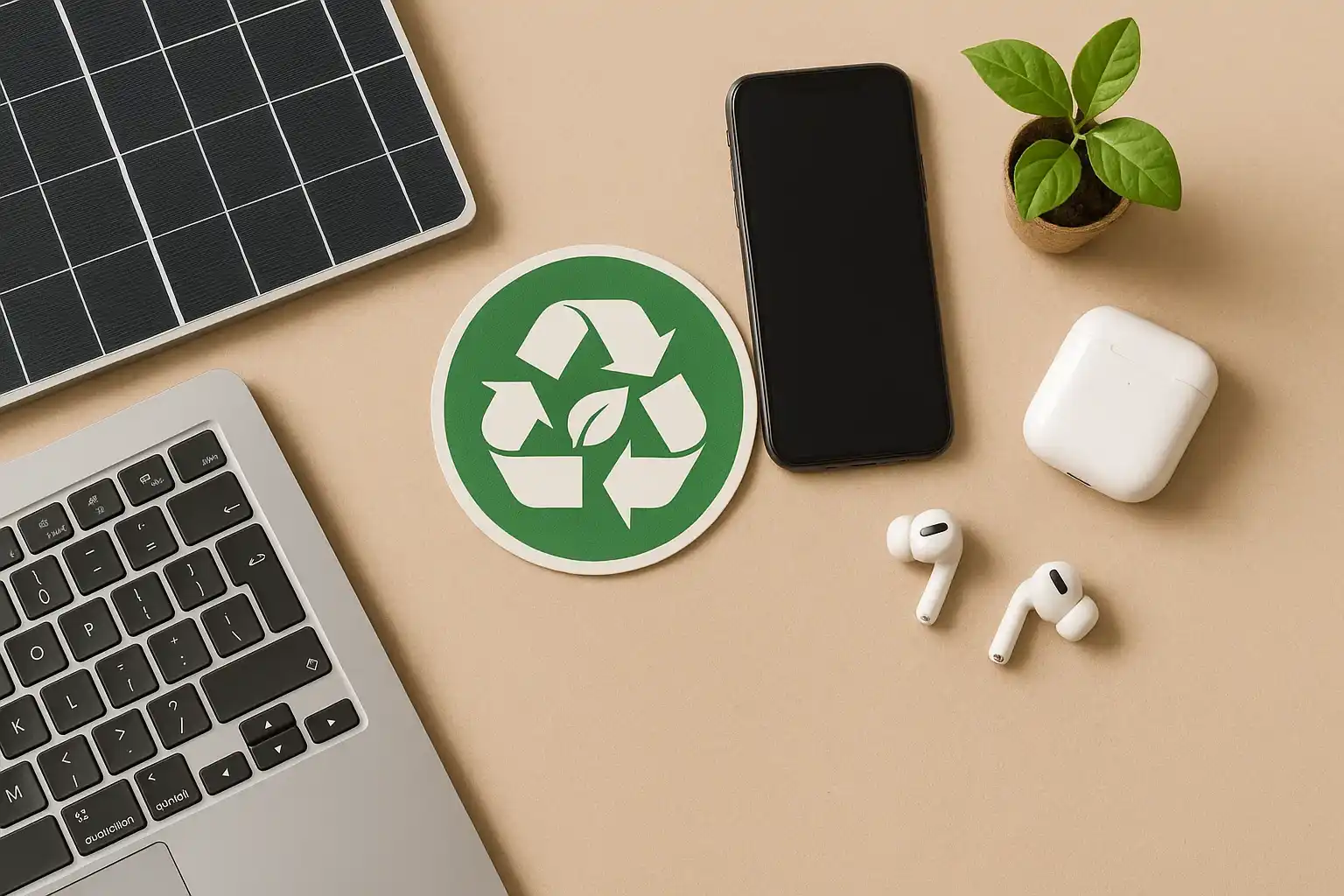Beyond Plastic: Exploring Eco-Friendly Materials in Tech Casings

In our digitally-dependent world, the sleek and often colorful casings of our smartphones, laptops, headphones, and other gadgets are ubiquitous. While these plastic exteriors serve functional and aesthetic purposes, their widespread use contributes significantly to a growing environmental crisis. The reliance on fossil fuel-based plastics in tech manufacturing leads to resource depletion, energy-intensive production processes, and the accumulation of persistent, non-biodegradable waste in our landfills and ecosystems. As consumers become increasingly aware of these environmental implications, a demand for more sustainable alternatives in tech material science is emerging, paving the way for innovative and eco-conscious designs that move beyond the age of plastic.
The sheer volume of electronic devices we consume globally translates to a staggering amount of plastic entering the waste stream each year. Unlike natural materials, conventional plastics can take hundreds of years to decompose, leaching harmful chemicals into the environment and breaking down into microplastics that contaminate our soil, water, and even the air we breathe. The lifecycle of plastic, from its extraction as fossil fuels to its eventual disposal, carries a significant carbon footprint and poses a long-term threat to planetary health. Recognizing the environmental burden associated with plastic casings in our beloved tech devices is the crucial first step towards embracing more sustainable options.
Fortunately, the ingenuity of designers and material scientists is yielding promising alternatives to traditional plastic in the tech industry. These eco-friendly materials offer a pathway towards reducing our reliance on fossil fuels, minimizing waste, and creating electronic devices with a significantly lower environmental impact. By consciously choosing tech with casings made from recycled aluminum, biodegradable shells, and durable composites, we as consumers can drive demand for these sustainable innovations and support a greener future for the technology we use every day.
The Appeal of Recycled Aluminum: Strength and Circularity
Recycled aluminum stands out as a compelling alternative to plastic in tech casings, offering a blend of durability, aesthetics, and environmental responsibility. Aluminum is a highly recyclable material, and producing products from recycled aluminum requires significantly less energy compared to extracting and processing virgin aluminum. By utilizing recycled aluminum in their device casings, companies like Apple are reducing the demand for new mining, conserving energy, and minimizing greenhouse gas emissions associated with aluminum production. The sleek and premium feel of aluminum also aligns well with the design aesthetics of many modern tech devices, demonstrating that sustainability doesn't necessitate a compromise on style or quality. Furthermore, aluminum's inherent strength provides excellent protection for the delicate internal components of our gadgets, contributing to their longevity and reducing the need for frequent replacements.
The Promise of Biodegradable Shells: Nature's Return
The development of biodegradable shells for electronic devices represents a more radical departure from traditional plastics, offering the potential for a truly circular lifecycle. These innovative materials, often derived from plant-based sources such as cornstarch, bamboo, or bioplastics, are designed to break down naturally at the end of their product life, minimizing their long-term persistence in the environment. While the technology is still evolving and widespread adoption is yet to be achieved, companies like Nimble are exploring the use of biodegradable and compostable materials in their product casings, particularly for accessories like phone chargers. As material science advances, we may see more widespread use of biodegradable polymers and composites in the structural components of our tech devices, offering a future where electronic waste can return to the earth more readily.
The Resilience of Durable Composites: Strength with a Smaller Footprint
Durable composites, often incorporating recycled plastics, wood fibers, or other sustainable materials, offer another promising avenue for reducing the environmental impact of tech casings. These materials can be engineered to provide the necessary strength and durability for electronic devices while minimizing the use of virgin fossil fuel-based plastics. Companies like Dell have incorporated recycled plastics, including ocean-bound plastic, into some of their laptop casings, demonstrating a commitment to diverting waste from landfills and oceans. By blending recycled materials with innovative design, durable composites can offer a robust and environmentally conscious alternative to traditional plastic exteriors, proving that performance and sustainability can go hand in hand. The use of post-consumer recycled content not only reduces waste but also lowers the carbon footprint associated with material production.
Driving Demand for Sustainable Tech Materials
As consumers become increasingly aware of the environmental impact of their electronic devices, their purchasing decisions can play a crucial role in driving demand for tech with eco-friendly casings. By actively seeking out and supporting brands that prioritize recycled aluminum, explore biodegradable materials, and incorporate durable composites, we can send a powerful message to the industry that sustainability is not just a niche concern but a core value. This growing consumer preference can incentivize manufacturers to invest further in research and development of innovative and environmentally responsible materials, paving the way for a future where our beloved gadgets are not only powerful and convenient but also kind to the planet. Choosing tech with eco-friendly materials is a tangible step towards a more sustainable and circular economy for electronics, reducing our reliance on harmful plastics and conserving valuable resources for generations to come.
Related Blogs

Neutralizing Your Tech Footprint: Choosing Carbon-Neutral Tech Purchases
Support climate action by opting for carbon-neutral certified tech and offset programs.

The Silent Energy Thief: Cutting Down Idle Device Usage for a Sustainable Digital Footprint
Improve energy efficiency and extend device life by implementing power-saving settings.

The Unseen Gigabytes: Cutting Your Streaming Carbon Footprint
Reduce your digital carbon footprint by adjusting streaming quality and habits.

Swipe Right on Sustainability: How Digital Decluttering Cultivates a Greener Lifestyle
Insights on digital decluttering for a greener lifestyle in a sustainable way.

Decoding Disposal: Your Essential Guide to Responsibly Recycling E-Waste
Insights on the rise of ethical tech in a sustainable way.

Surfing Sustainably: Unveiling the World of Eco-Friendly Browsing
Insights on eco-friendly browsing in a sustainable way.
Stay in the Loop
Get tips and insights tailored to your interests — no spam, just sustainability.